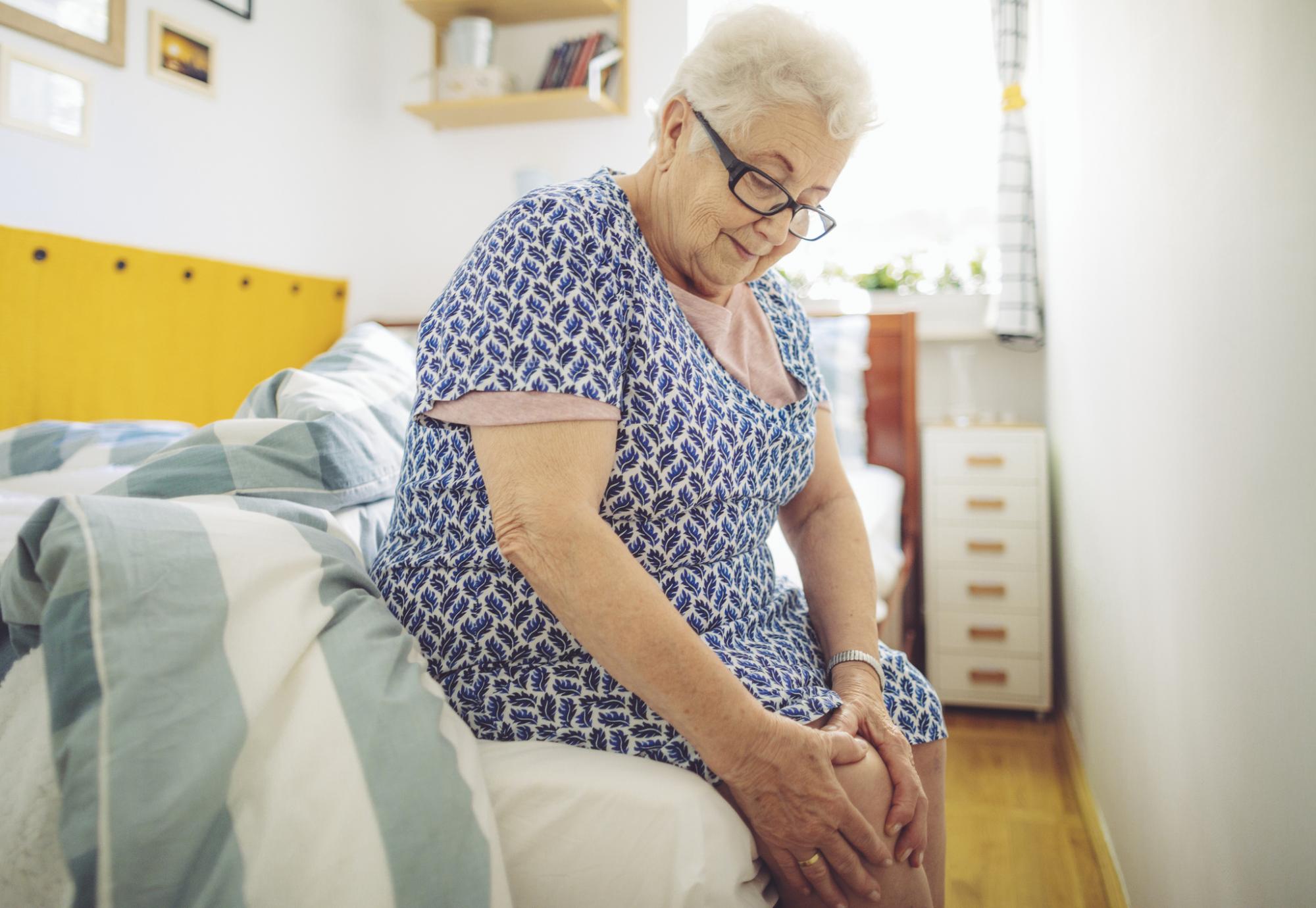Arthritis and other musculoskeletal conditions impact over 20 million people in the UK and affect every aspect of a person’s life. The latest in NICE’s series of impact reports looks at the impact of NICE guidance on the treatment of arthritis. Judith Richardson, NICE director of health and social care, examines the report’s key findings.
The report shows how uptake of our guidance has contributed to improvements in arthritis care. Improvements include the reduction in referral, assessment and treatment initiation wait times for people with inflammatory arthritis and the provision of education and support for people with all forms of arthritis. We have also highlighted the transition to biosimilars and expanded access to high-cost biologic medicines, and the reduction in unnecessary knee arthroscopies for people with osteoarthritis.
NHS England’s Evidence-Based Interventions (EBI) programme uses NICE guidance on knee arthroscopy for osteoarthritis to class the procedure as a ‘category 1’ intervention, which means the procedure should not be routinely commissioned or performed. The Getting It Right First Time (GIRFT) Orthopaedics follow-up report shows that, since 2014, there have been over 2,900 fewer arthroscopies requiring subsequent knee replacement, resulting in cost savings of £5.9m.
Before consideration of or referral for joint surgery, we recommend that adults with osteoarthritis should be supported with non-surgical core treatments for at least 3 months. Core treatment options include providing information to support a better understanding of the condition, muscle strengthening and aerobic exercise, and interventions to achieve weight loss for people who are overweight or obese.
An example is the Central London Community Health NHS Trust which set up a healthy knee group to provide education to people with knee osteoarthritis who have been referred to physiotherapy by their GP. After attending, 77% of people were happy to self-manage their condition and only 10% needed further review with a physiotherapist.
NICE’s quality standard on rheumatoid arthritis states that, once referred, people with suspected persistent joint inflammation should be assessed in a rheumatology service within 3 weeks. Data from the 2020 British Society for Rheumatology National Early Inflammatory Arthritis (NEIA) Audit shows that the number of people referred with suspected early inflammatory arthritis (EIA) being assessed in rheumatology within 3 weeks has increased from 38% in 2018 – 19 to 48% in 2019 – 20.
In recent years, synthetic and biological DMARDs (disease-modifying antirheumatic drugs) have become available for people whose arthritis has not responded well enough to first-line treatments. These medicines are more targeted and many work more quickly than conventional treatments.
To achieve their treatment target, a person may have to try multiple conventional and biological DMARDs with different mechanisms of action. In 2020, we updated the treat-to-target section of our RA guideline to clarify that people can have multiple treatments one after the other to achieve their treatment targets.
For most people with rheumatoid arthritis (RA) and peripheral spondyloarthritis (SpA), we recommend initial treatment with a DMARD such as methotrexate. Unlike NSAIDs, DMARDs treat the disease, rather than minimising symptoms. The proportion of people with early inflammatory arthritis who were started on a DMARD within 6 weeks of referral increased to 64% of people in 2019 – 20.
More recently, we have recommended medicines such as baricitinib and tofacitinib to treat RA and some types of peripheral SpA. These belong to a class called Janus kinase (JAK) inhibitors. The prescribing of JAK inhibitors has increased steadily since being recommended by NICE. People who either cannot tolerate conventional DMARDs and anti-TNF inhibitors (tumour necrosis factor alpha), or whose treatment targets have not been met while having them, might still benefit from JAK inhibitors.
A cost-saving highlighted in the report comes from the transition to biosimilars. Biosimilars are biological medicines that are very similar and clinically equivalent to an existing medicine, but much cheaper. Adalimumab, which is used to treat multiple inflammatory conditions, including arthritis, was the most expensive single medicine for hospitals at a cost of more than £400m per year. Changing to a biosimilar has led to savings of over £100 million per year.
As a direct result of these cost savings, we are now able to recommend several biological treatments to around 25,000 people with moderate RA that has not responded to conventional therapies. These treatments were previously only recommended for severe RA.
Alongside medicines, the long-term management of osteoarthritis requires a holistic approach to providing care. The decision support tools developed by Versus Arthritis and endorsed by NICE are designed to help doctors and patients make informed shared decisions about treatment.
Stakeholders who worked with us on the impact report have identified the following key priority areas for future development: improving access to physiotherapy, reducing diagnostic delays, improving data collection and improving access to psychological therapies. We are encouraged to see these priorities, which will make the care and treatment of arthritis increasingly impactful.



















